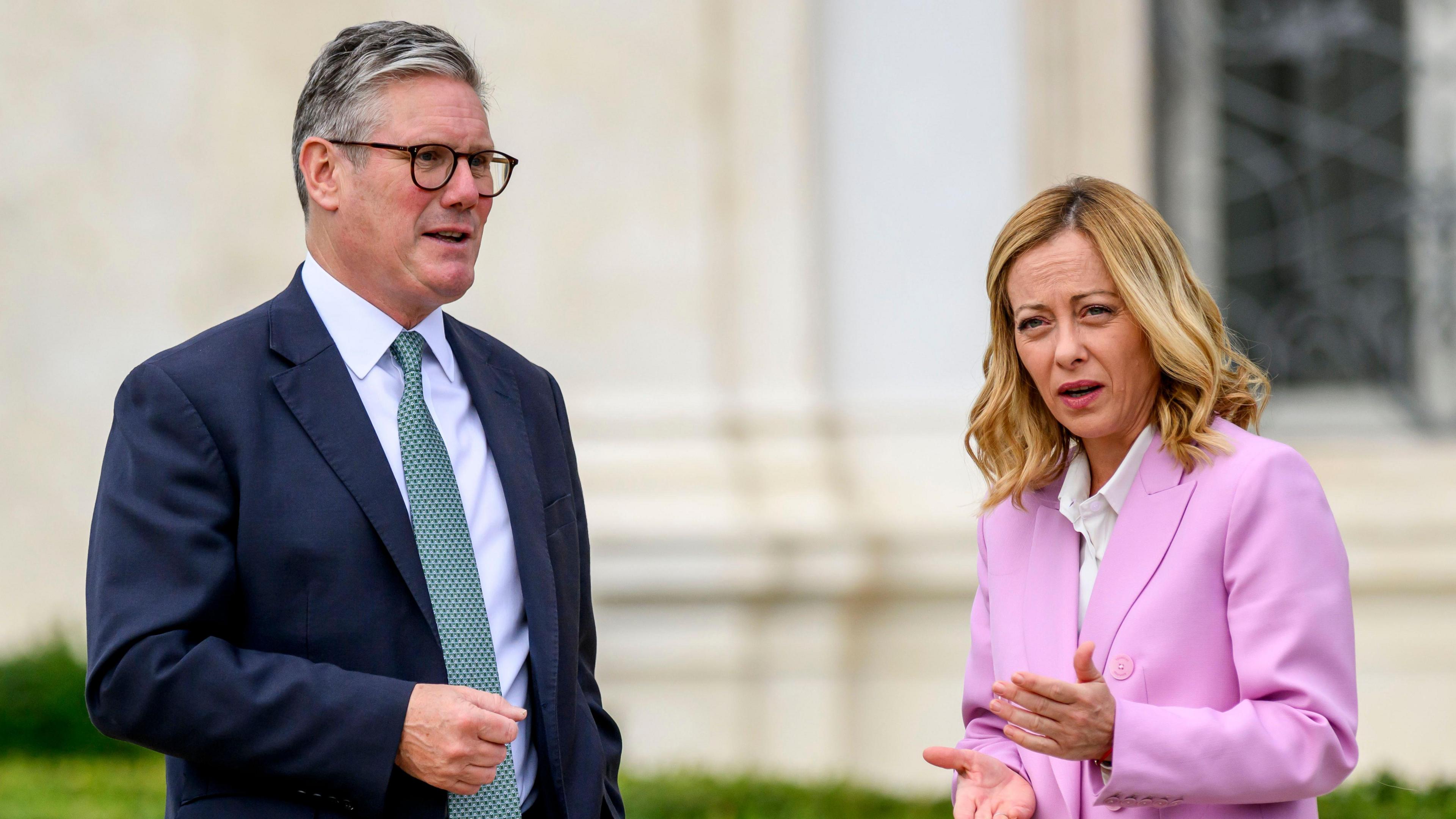Italy faces big setback over migrant camps in Albania
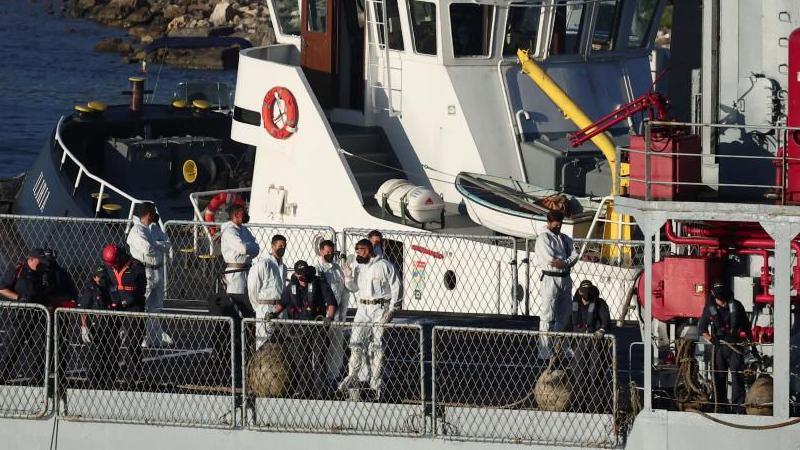
Italy's first migrant processing centre in Albania only opened this week
- Published
Italian Prime Minister Giorgia Meloni's five-year deal to send migrants rescued at sea to camps in Albania for processing has been dealt a significant blow by the courts, only days after the first arrivals.
A special immigration court in Rome ruled that the 12 migrants, sent to the camp at Gjader not far from the Adriatic coast in northern Albania, should be brought back to Italy because they were from countries considered unsafe to be returned to.
Meloni's deal with Albania has attracted widespread interest with Western allies and Italy's government has said it will challenge the ruling.
"It's not for the judiciary to say which countries are safe - it's for the government," she told reporters.
She has called a cabinet meeting for next Monday.
Although the EU says irregular migration has fallen this year - by 64% this year via the Central Mediterranean route - governments across Europe are under pressure to curb the number of arrivals.
The Italian agreement with Albania is aimed at processing and then repatriating about 3,000 irregular migrants rescued from the Mediterranean a month in two camps.
But the estimated €800m (£666m) cost has drawn criticism from opposition leaders such as Elly Schlein of the Democratic Party who said it could have been spent on healthcare.
The deal does not include women or children, and the first group of men arrived in Albania on Wednesday on board an Italian navy ship, three days after they were part of a group of 85 people picked up at sea.
There were 10 men from Bangladesh and six from Egypt on board the Libra, but that number was swiftly reduced from 16 to 12, because health screenings assessed that two were children and two were vulnerable.
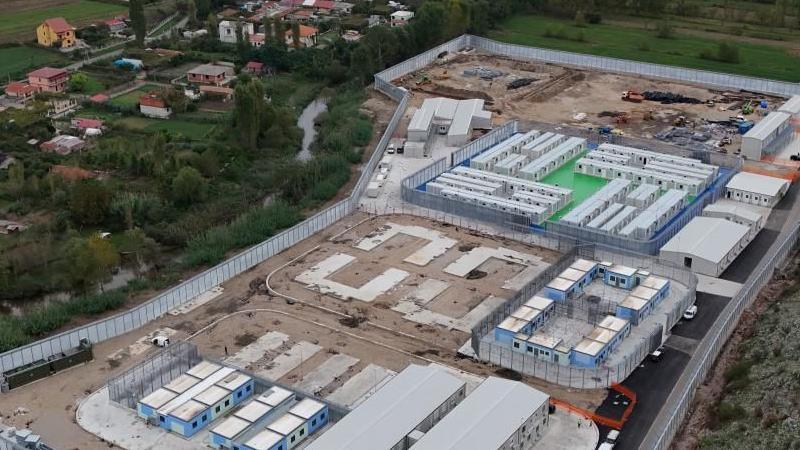
The first irregular migrants arrived at Gjader in Albania on Wednesday
On Friday, judges in Rome decided the rest of the migrants should be returned to Italy too, even though their asylum applications had been turned down. The judges ruled it was impossible to recognise their countries of origin as "safe countries".
Interior Minister Matteo Piantedosi said the government would take the case to appeal, insisting that Italy's migrant camp plan would become European law within two years.
Current European law was spelt out only two weeks ago by the European Court of Justice, which said a country could only be considered safe if "persecution... torture or inhuman or degrading treatment or punishment is never resorted to, external".
Italy's deal with Albania is being watched closely elsewhere in Europe, including in the UK. Prime Minister Sir Keir Starmer said he had discussed the "concept" of Italy's deal with Meloni last month.
EU leaders agreed at a summit on Thursday that returns of irregular migrants should be speeded up.
European Commission President Ursula von der Leyen said new proposals were being worked on, and she argued that migrants in need of protection could have that protection in "safe third countries".
In a separate development, the Dutch government has run into difficulties with a migrant plan of its own, involving a so-called return hub for rejected asylum seekers.
The idea to send people refused asylum to Uganda was first mooted by Reinette Klever, a foreign trade minister from the far-right Freedom Party, during a visit to East Africa.
The plan appeared to catch Prime Minister Dick Schoof by surprise at the EU summit, although he said it was an "innovative solution".
And on Friday it became clear that it was also news to Uganda's government. "We did not discuss anything about the Netherlands sending refugees to Uganda, we did not," Foreign Minister Jeje Odongo told Dutch radio.
"If there is a proposal to do that we will look at it on a case by case basis."
- Published1 August 2024
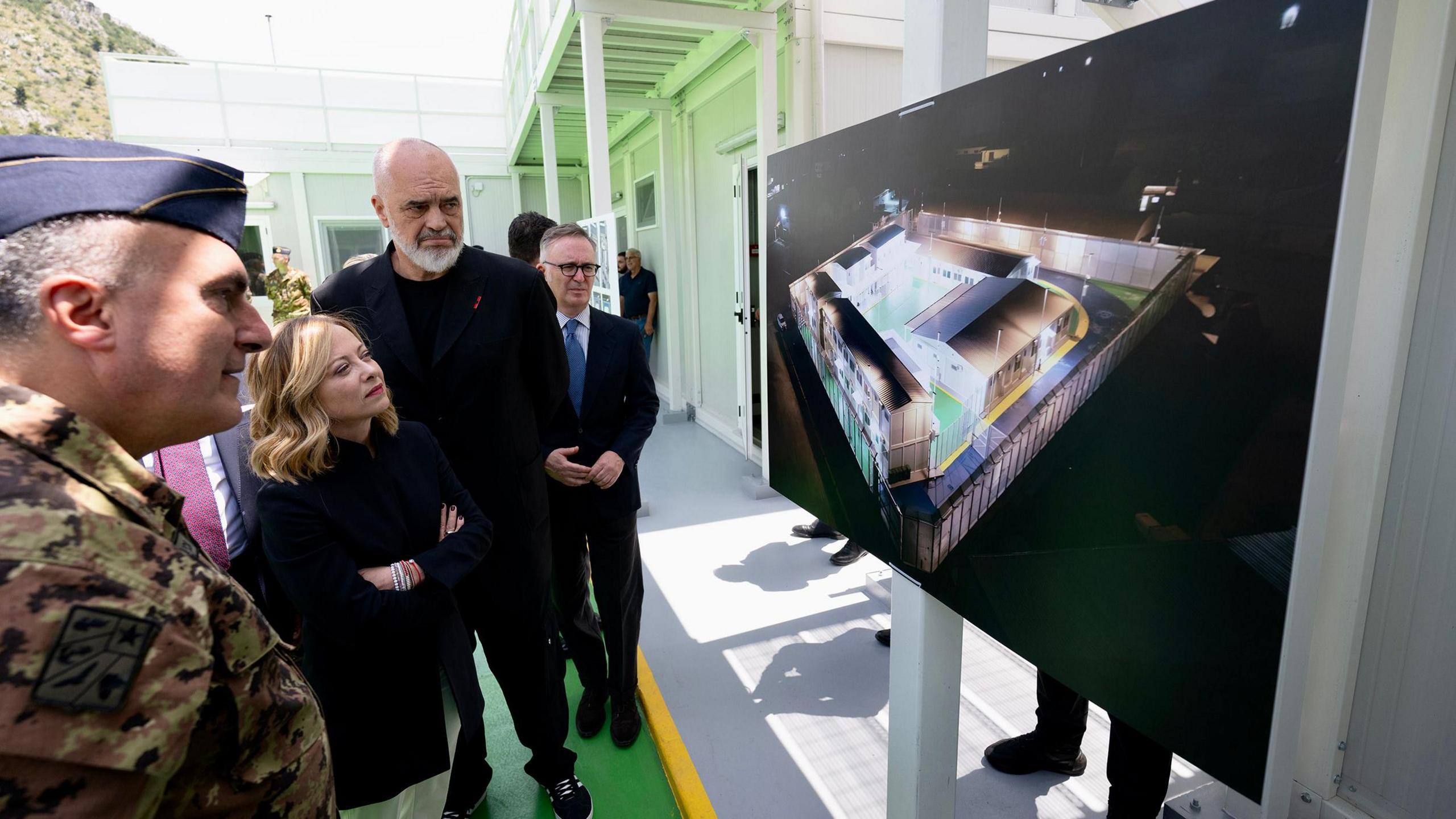
- Published17 October 2024
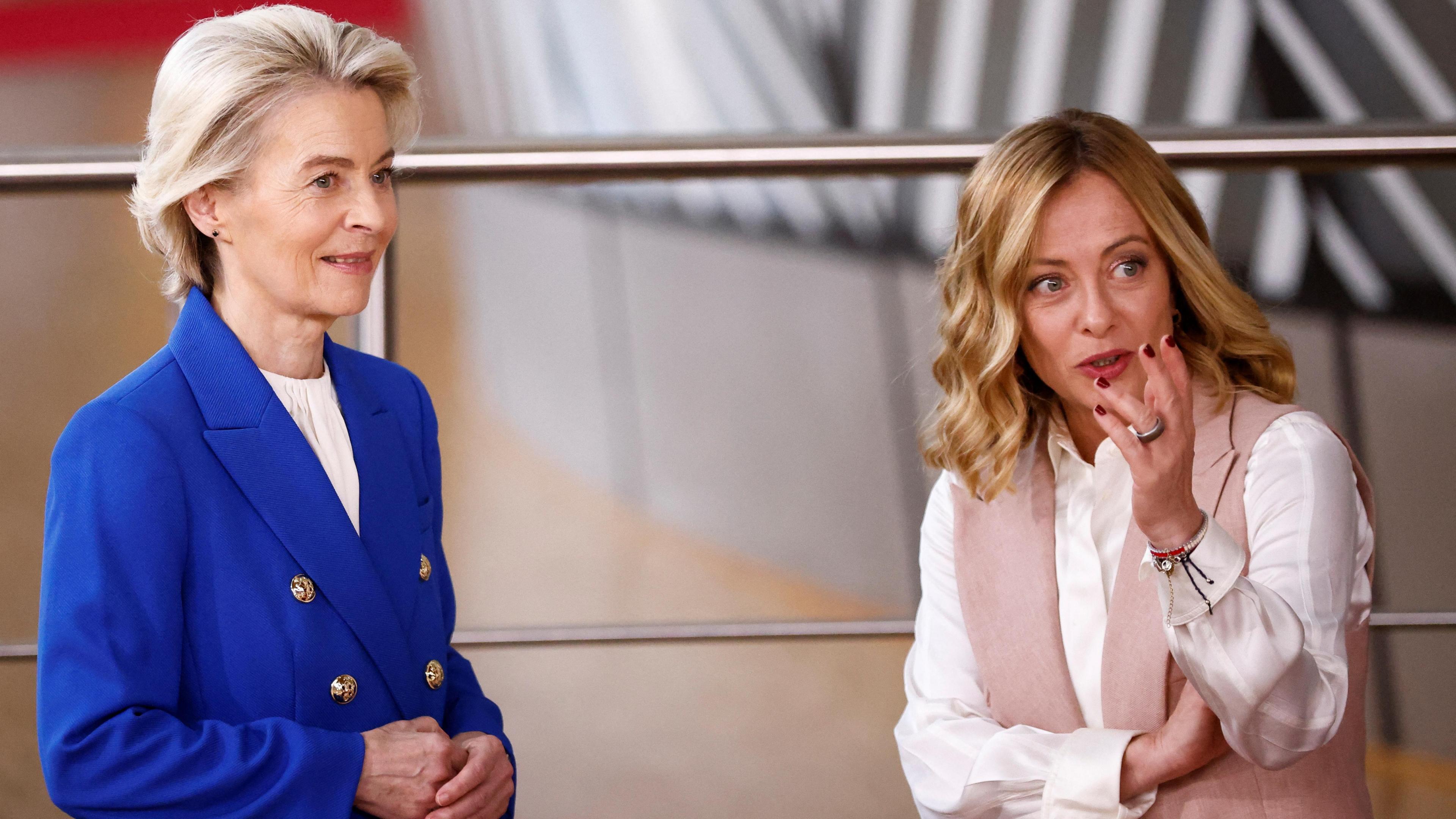
- Published16 September 2024
